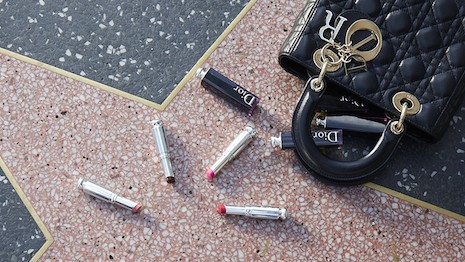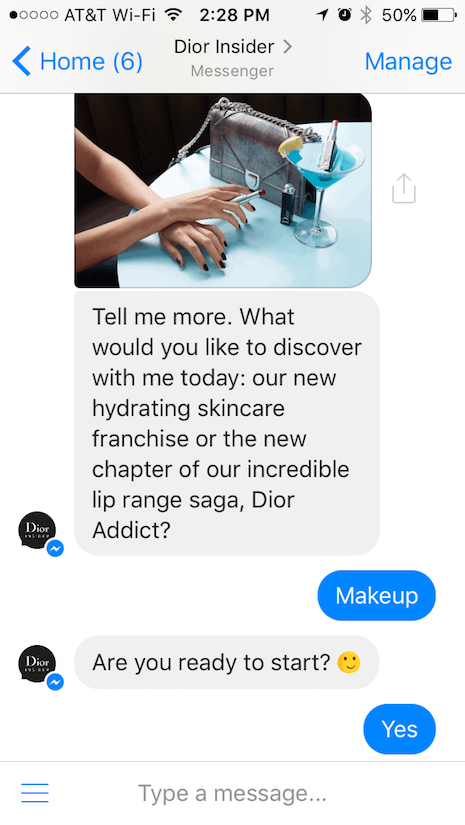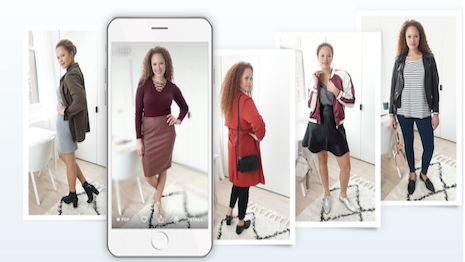With advances in artificial intelligence technology, 45 percent of retailers are planning on using AI to improve the shopping experience in the next three years, according to a new Boston Retail Partners report.
Boston Retail Partners’ "2017 Customer Experience/Unified Commerce Survey" looks into shopping behavior and trends for the upcoming year. What the report found was that AI will serve as a key bridge between the physical reality of shopping in a store and the endless possibilities of shopping online.
“Luxury retailers should focus on using AI behind the scenes of customer service and as a fall-back when they miss the mark on staffing or responsiveness with their primary customer service model,” said Perry Kramer, vice president and practice lead at BRP, Boston.
“A specialty retailer, for example, may target using chatbots and AI for 50 percent of their engagements with a focus on non-core customers while a luxury retailer may set that target at between 1 percent and 5 percent and consider it a last resort to meet an established service level for customer engagement," he said.
“Luxury retailers should experiment with AI to analyze leading global trends and leverage predictive analytics to identify trends in markets before they happen. The critical piece of this is finding the right way to inform associates that are working with the consumer so that they can use it as a proactive tool."
Artificial intelligence
Artificial intelligence already plays a key role in several parts of the retail experience. Retailers and brands have been using chatbots and other AI-powered technology for some time.
But the use of these technologies is set to expand in the near future. BRP predicts that in the next three years, almost half of all retailers will begin using more AI-powered technology.
These new technological additions will be focused on bridging the gap between online and offline sales, a key part of any modern retailer’s strategy.
BRP notes that 67 percent of retailers already offer a consistent product assortment across channels but that many are still struggling with the finer points of omnichannel retail.

AI can help sell all sorts of products
AI can help alleviate some of those omnichannel issues.
“Using AI to increase the effectiveness of having the right products and the right associates in the right time will become an absolute requirement for luxury retailers," BRP's Mr. Kramer said. "However, being able to read and react to a customer in-person using intuition and human intelligence is a long way from being replaced by AI as the best service option.”
Artificial intelligence can be a particularly useful asset to the luxury world as those brands try to have the highest-quality service possible for their customers.
“Luxury brands must continue to invest in the in-store and online customer experience using AI and unified commerce platforms if they are going to maintain the high-touch level of service that differentiates them from specialty and traditional department store retailers,” Mr. Kramer said.
“Having a unified commerce platform that provides the sales associate with visibility to accurate, real-time inventory without leaving the consumer's side is critical," he said. "This is where mobile technology, unified commerce and AI all come together to optimize the customer experience.”
Luxury opportunities
Artificial intelligence has already been embraced by the luxury world in some capacities.
For example, a recent addition to the Amazon Echo’s capabilities served as an opportunity for fashion brands.
Consumers who purchase the new Amazon Echo will have the ability to receive fashion advice in regard to their outfits through the device’s camera and its artificial intelligence solution. Fashion designers will likely have an avenue in the future to further connect with consumers through this feature (see story).
Also, French atelier Christian Dior is the latest brand to leverage Facebook Messenger as a method to dispel news and happenings with consumers.

Dior's AI chatbot
Dior has launched a new experience via Facebook Messenger called Dior Insider. Similar to other brands' strategies, consumers interested in learning the latest Dior news or who have questions regarding a product can interact with an interactive chatbot software (see story).
In addition to AI, retailers surveyed by BRP are also planning on using WiFi and mobile applications more in coming months to target customers.
“Having a mobile vehicle to communicate real-time information on a very broad range of subjects to the sales associate is imperative," BRP's Mr. Kramer said. "The topics should range from global retail and fashion trends to real-time updates about a premier customer who just pulled into the parking lot or entered the store."
{"ct":"Rj1BgRt1+IH+H66cU6Zof2AMFyyuqSmFxUcNM4tXdEls5EhylUtDQwf\/ARAMgyn3zBYAwCcqh5A4\/wfOB7R\/ADDpEF\/5sHqYdnta+vM3psHXM5VB3gRByQ\/LrZhBD0uAseAlSiHLpwy+l6mbLmizZXSt2SGiO\/1ImY6isc5C0bioyFR08YLJcZLLLKOpbtGhMJU7AvUc9KZAIcv3twOxlO2btiqvTxXZgwmEMeDnvfDv0CPpU3yXA5I+Ri10fjM3pedBY7Ph9BE1oVLygM5Xq5zXRDy4vHHVpjcD2cptmoRVG\/1rLAYBq7XejgguHZUhQNOp\/\/CsXOdNFmYCerAkUEeGYN+m+K7Yo2+j7jspd01KyiafKCavZOpa2TgrTEfJG2fRswmhHZJu3LQDkNOyPqE1rkc3wQVWRd6fo4vlhMyOxYcGauthd8vq+9mX69cPBj50X8ojGNN3jR3\/UKpvsAdmQRSdPZ6aEZI4r+yU7uTguEAwpOpqCjQRiB4g98fh\/xRyfOdJ2PhcvYhMdJGgHo1iAZ11jLiglgaGGBMY7RRTMSmOGT3L7s5J24InfPDvNxnSIhSluq1e7LKZZEarp3prbnP11HwGVWqE7HpGOVy5\/JPO+XkwXeJ\/s06yxjFXEGEKr\/xQfUvth1miD6UCUG+bePV7BY\/WMKoveo1zkcXSoNXEJyQjHuCRfENBvxcquRo2cpO0dE8SO6RhlyxCPUOSzNnopCS9dSDhXY8vS3Q29q\/xb2S8xzoEGzFTBSJrMk8c7X98KKmgO2cUml7uas9MH92+DNC+gWZ+FUz\/Hmr\/9pulyHj2pUnruOyugQNihiV0EWagcGO6iwdGTyc4ufzhYKgBRjEmV\/2eMb1mdAc2pXs8t1XBBCCz06G+JSRqPgN4pOwfphOvxLQpp6IpdisiHzFYL159zapf\/hojXjEph+yCkrl74M1SW6xA\/fbX0UqiVY9qXu\/vgfz9hh0zyQPsniZc2A7RdsgH+MjNi8PcvsFj1diShLz2mow7W8BDZ2Zph0ekUHluPl1MLIgZriPJ9Y6emQ6myhP7QZ6xOoFqDpYbOywz6ZvQwEOY6n\/lLOcgj3E4pgpWsebu5DQ5f3dfVhKCT51et1Mq5H0wBVMXZixEfZaroajL+SGK5OUsX\/Zghxu5tc412XTlM6UHE2qBoeQtMjZzZAL6zkz7vI0OIqJHHZY9VSHihXcQD9RJRr5yCpOxz+LUSweqmJeWjPrLKEkOD534N5xoCPrXXQemyF71TcfzR0tDnw0Z0zCk\/Pq22gtCKn1DfPEmn8q1J\/uJzzYzA1dGtv11KEKEnFcbX\/ffYUVoGiz8ybesNcC0ANxLLZ0tI5IPMnaZDswEDPxaDyUStJvW6W1osVRVnDARB0BPJGyqwyzCGqBm2VRBwxqTQrx+ICK5kmK2Y1LPGDsk4JqFSx1wAtKyrjR9R74JA3BjrFV9PwXqq\/yKeyAfrUuJv+BL5krM4IyDKROVzMUgJxrRxodEHmcy+30V+cwrqKXNOtYqxKYPoEODrH4+xhFkbrfnEB3ALRPV0ZD+rudpbkBM\/2sMzNTHty5VOMcxAcFDU4IGD13N4KL3uDQI1ihHdLfKalx0VvyZzapNhkEioEE6DuYeg+XsWccFJHtHc7Yd+s1E9mtx7IdC593x6LqdlTqdedgkjXpCdjUXO8HZ5+U+LWUUF2mooAgvKugVpB2WFqLhy2L5i4Ny+l0tAVMRv8pODfm1u4UXo+omQggmzehm4ZsA2MP53eyKuOrLYnb\/ojapkpS1OAJIQlroBF6sINzXOd2eK1L5RNbEfNvZRb2huK63SJHtAmokDIzfxvEIzBn5Jn+iLz3IW0xoVMQbF94yDH2xKgqKGHMQsFCLNF13LMaGow5RM36hf+8V1lEkoNiFbewzIcSiLYbN\/nac0nCA+X4oD56to5aOgJrmQSKaU8R7Gqi0IWcqeWhJvtPbVTCl0LPyaccM4VrL131h8XqRb68upHnoRpZBV5rOvp0VPjP8TQAmNLRs\/cSLo4qRFJJLK0c4O45iCtBuj91o7BO8kPknPx8CP2jBplUbsRPOiEZZEyAuteoGtJR1wFo5NJKqIEiCaA2Sm0iHJIjYjIQTTz3GbpDtJIqFKL5HAM71Ficru2C9U5hcV3QaFd0oPIS7Y+I0V0ZlJwmQjdGnGFUQCtYSny6mCLopYgRZX\/xt2uXxM9xInrcVwPNDF+YR4Mvo1X4N6+OWWn\/gY0O5ayYTEUT4dM50bZecgxunu52IwZef148bXKh2hI8ck40\/8ynfNcWjno9APSKD\/+j\/wB8hPKALz9\/i2L5XIvkXR5zacwRDjBnhR2kqoYk4gGthLQIv72vceleIazOJ5hFB5qi1g+AzLYdLQco6ZvOVpPLiIBQr4TvQHgsyctuh9pGcU7i2NHCRECzQTkZW0pcbV9JhUhVkr80yu0Urj5Rywcr0bjBYbo5jRQ8HGkl9FWbLEMMFiw\/nTVMRd70tUffQIV97iZjPoSeTFX2xVt04W+xEIpK0yNTFnVv4B2VrMw26AV9mofXFlvoA1EOcW96Jzv0uBoSFaElm\/jhgdCmm3bGbM9Ftq3HDdeLyaPTpcy8boqurkQbAXOKVUEhOPnonme3Ehz1bxaMREKNWDEFEnx+C9I0fJfEHEdbRccwEXJJNlFYyRsWvSCsyi2A0TWVjmXiUAH6oQ53VGemgcIluhNjLxZ4ebYZ+FuwJnINFwQ0fdWaKbehymqWEQ0Ie8GwP2Xgs9RpTaEsVZnlLfXXwa\/4DgxehefZHXGu1MT4oq+iBs3RhWMugGhOG985dPZOlxw+wpF1PlDvu6Rz95CpYP4z7HOPrZqLTnHjZxfob4CYhpq8cPVXO7QR5oO2xwjH4Y45qsjXo8KCKBek7tZF78gfmJfQmmSZ\/D\/VA7icds4twtzxM00fahWMMEP71Z+f7YOAIPIdXFGAJuMoJIltIDnzstiNFqQ1468HieZmg4VQ+8zVPhRRo8QYmbZP24RwSDeEiiw2ORr\/7GujfhO8gX4Di67AwUOweZeRrIKOvlha40yqQhSyvCVpB\/FkcFei4VWs6+D8KUE0\/WhkJKkUIkaFkJeGtnfjUqiQZMwJnrUAB3srLHxIS3dvkzneZ+mRP5tOmVquBN++9ZxLhvOoJnrdOryzG+6aqO4xxBGAp1FuBKnq2kZkbb1O1syXzxA49mF0eJ4EltMq5FgEnw\/d\/EHmKDIK\/\/4FpJPtenvI8b78p7yIEPp43iOhzv54DnWoVG+C9zC\/\/eY+UpjLSTFWcP+frWxE\/X6lnWFTncrzvGZgHmEbhkaP0CdQzGFhlfxgO82u\/O8LUYl64b8w4FMI6Nq7owkMwur1H71KV5zWU6qPti36tYkHjtGnjatopPS+vbzuBFP+US\/gIRCchTd5cPVHAKPAutBkcAMWOLUZ76q4WJfw41cXcAo8gs1LLDsS2sfzIYURYBxggN8tpLWAdPghUJT4MbK9VuqH00Gu5mwpF7ljPSn5fEmcPRRJ7nKDJwFEQD6KSyzwj8cqlsKS+Iv7YiKXto2FvjBlpW4kmDn8rnKMjwW3h0zNNof3DSVgO8vS3DbvCO0jwZc2PbnKYJzsKDazZo5X92PwBPq8gc3clcoyjmopmZYePUVuOhxnXOyK37+7DZ\/DxTxg667L06apozc\/2vRs\/x5ta9zqHOzB7Ur6QUCRaZzucUR94H6+aCxGVp1eVGfd2pELfrVdOFxDeHK59Ejtoif5xlFNhAgcMnJewxCnDxd3aMVKvJwHRXMSdWSrj+D0gWSKVLU5x0inUNJfIomVRi+JYgklBgD6m4cEuZVHvMU\/WqBE38QrZkgeALHTkhtItdMvKyVu7eFuYHrd\/K2VmV6CwIDSIcviIuv06QF0zeTN4QctkflkOiMfk\/y3WPeRwTUiysp0fqm07thhnAnsLpTFdAPQWkckrUDgfMy0yUkXhUjNUm0NQPdoZZqSMeOcNJ4p2llCgV3pXygNWJp0IeQucG2tQ9r\/miIlWFXvqieJx9QG2xDzuFqNq42J+Y+J2bDzRG8Xm2iIroHSn41L\/Ggzvtgin+4Ab79k8Ivr7fz37a1t\/pmFDiYccPDfGJ5xVTZvWUkeC7jHxBlSbSti+zlJskcHOK5D+8nUh9ZmfPJv8l0PgIGgu75Pype\/6W0YbAY\/wyb612IeU9Wr7DnucOeQiIKemqruUc74yhY0WAuJNiM73s6qVghyUNJFU5L+cziarhfJtBHJ8nam1ZkKPe+Rl4N2W\/MFJN3hqXG5fGkeaACk1NLQEZ+ul3LmIuvCIO1L\/D7uGektxkaevrp0KG3T4C6\/cWksuis49\/LFvvLpQeeSp1VQZ355Qsv75ejevR\/ZS2rm6bYXPE2KxWXZiMt+Ob84VYUzMZEbf1Q8gH37dnFqnHSHYwGB3zkFVavijXAZ5+YMVHEZI3PvNj3KaTS\/akIkoHoJ8AOOMe0V2ojbuzUNkV3KCyz9\/Xkd3uNudXOFd5+AD8rg04pmZgf+8R+PLhg4sQTMgZ2miH5lMkRxGd4ZdavI4TIZ95mhhFF18w31qwf43w31zWzFYVP++WxNUDVsKqr4WmEQpxuMVcSELdwbC8+\/2T78ORFtCUPJmsIjUNPvxd5pgPIA4jPVfsapgFLPSPW8vt6r4FfstjEmOucbVlgcj+QMx3VdWwdW+2oCG4yxPiK1Qff4DqtXhqrJRGWt95HbSFNgEexvJnwSvV8UZQXat9TzWkiYLMxOUtK9bGcGlaMObFiIAkVh5pOD+tShU\/0oq7RKcONrHFLN7pIQt+walvb1hPFTBTm0K9A+uyvHnmAr2lPVMpi7S7o8xliNZ7Tv+F15qP6GTUUpC2bTXhOu2FM2MQNVNJTeTHODimHQNA+sD0DE9ej1KF6EIbESYQStmJWMUcudWW0er5jegWyo8vWESAx0+QwufZ7xRWcI1eJZlToAcfZB8oJdrfqnEmpYxMBQwx1074YX9D74tOWeYMyf\/VnQ\/TbqAoGI1lEnaN5q+vuTBPBnBT4r8C19lHkr08KpX4Kkize04s3IV0LgdQ7enKByb8soZV73sAtQs7B8bdmYr1AzSkgcAanMzcKClfxsBr4FB0RuBNrHQ\/Exzko7dgOX\/figOaGfRjSVB4cuAY8lHqJzPVieZwZZ0ND0xrJIdRaPHgcxjU9Oz2wj1hZmEVAbcDw9fvqDVZPqe\/eOIYKvPY2DgwiWlCJAu9Whc4aLJ23szKiuUd7KjpNeMq8sugiXOQlZIj54zenjm7LcH333aS3yrDkS+ojSxxqrFxGgS+akZOU19+90Gk53wVSnV6yj8DvD736YFnXhvzYYsMRc7DZWTjfCOspDitVBJYls1\/\/zXfVb\/04Yx4YdfP+f\/p6\/WIrMgviw3fC1DugW7zFp1244ybhQxP2l7JuzcKuiNiBjP8QyszOraQgXTRG1Oab2Txd0Emh3fRcDhFyoqM5b5Ls3xYtrrONtqZrnEaJWMMezSnMYGTCbVa9m3gy7mY7Jm9PQ4Qm3+lZ2U0wJU6aHZqcabiYObM+LVsc90eHI\/Bg0Ql\/nK17ckTw3jAj+ht8h65KnQyA+L8zc5H+eyF99xXen0c+eZzvdylCdq9UAzyhiRQHCcwHNeQCCx55BoLtSiKO133sq3Pt1zsxZLOEA1Qdzr3nYbj6ei\/Fyqh291t9MT3b4oHQCxjiMCedzFKeSp3ear7meezpvKgLfA7le878FsSfTrwMZ9LlkGGMXvQI7ubXN2gFf3xtqtTusKWyMzdcSnUd8y58x2zgQAcRiaWZfeO9DdvKapJJob5T1rPw3WGDIyy4uQOS+Z6kLozrRHxWbCs11Aee6x56aLksXg+dJ\/tDZDAhbE5Wv11MtwKHOQ3KPBdsV7TSAVI\/PtcMYAg3AMdlfu\/aByQ4HOOY8xK4o5XCaNhA473xb+fNxhdTbeGnLHfNhd+3IuR5pNSTGkqTA\/0QV0BHZv+jszlQY5fN6d7Mo+exr0IYO6a3CwLxL2ENx\/A2oqBevVh2XmZEwa1nD\/USnPHUdeNP0axN9vBhnAo6hptphdJL+XA\/4doyjYsCk0NFkdcfBdW8B2sT+Iiv7qs\/O1foQHhtJFGojCww47aUnP03+7QCN1tmmyvlnB+oafprk\/744qACOXn6rDLig\/yuMZ7Zwaan5aHHLe+CqopoThiZUTzB2436bz22mCxn0nh4nLUXKBtym3\/r7+CEg+Uwn1mWnAIYnD9B6bRHD0swoOagZzHEC5rgnk2fm4Np2mDd\/nx3mL3BV5VH8ejiyvhRC+UyV2wflv8bBXeWtB8Fr5SkF+nNvOiKR2TDOlnKAVvONE0eqfe8dYse8FANTr0QmMCPKxY9jwEcOnmXcK9tPYt+TUChBb9pMla\/0CfqDZOZ1L0ubu8ItntkLq19E0gsgIGes3a4I\/8RWCaqCGyXUXvp++JSZNZMW4bl5+ysHA7r9rl7sJvzV3+WFrvnTVjC5RiXHs+GLLsUZ49HAtnQ9bHAkaHJts332Hn8Y6UoXvy8Lt6IiuzXAqRzwtWztujCCa6h9pab1QXWqN1rKMvWlh87yXU3p2bsEKl6YLtoVKUUtfxg6pfys+wluJUlekkJfubDvSAFErpUQ6FcvP46PkwxxWUyITiRBCiZZvQ+uVJZ2nJG1NZmPICVMyvxaS\/OfeeAlPrgzug3oZT\/XUmYkyZsGhdTky8X9phTSAvZpjDWdhRT2UhRd106xFYutB\/nhR9DanEGZFtWd3ETXDBPSmi+niRc+X5hYecl9hsD4o7sKu8AAhuPNbjXeQOGC65evDLh4W5hYboJ6fDn2p8bkaebztY7maEegBSjpedwlBEumw6vPPaaqE93EQVETz5XgQ6yJpBar9c7g91T1SQXIo3PisQUXpmWdNMFclVo2xMwUGReRmakisv7mxNKm2VKQqeBedSSy0iqsh5ohh++4xqS8zKs6S5Hx6qeeYVkstSjlJLY4eRncNVRDHOU48bBSPsZFul+Xyg2XjmL88qDMHrNYfPoRH93O+a\/5YkjGXg83Vpjy5u5c8f5BmUeQnq81WGttIDizaXIMhxE5ghZS5VgSxFQq0HgiX+7WwjHNipEpDGwgcnNYGOhidkrQRjbXjohXMAELxjFMoD1RI8l\/5eQYMK6J2d2qz36S2bMl1dfJS\/TbVaK9YyVTXZdr2PJ4dJ39dc35N71SEn9uNXItw18a\/5Fgm1I42bfQNkNSp1bfdOFY\/NGKSXqgF3PLsdVyH8W7p1pY6byjc3TDOBYs1giHODkQ\/9fHuFSa87x4eFkZByEq5NJhqtge3EGRHXAIdQr1L4hyVIWcNIuYOjZY5K3A3aavGSLTw\/cCuYVqT3nD+xSDna5uCVL76I8wWgB13StJovV9\/U24vVjrLyxdhfGPL+tHypdM5IXxDkv6F8B1SS8QOG4T6QEjaN4SfM9Sv6gWJgZxs6FGJXyPUjj+jvj0EseEqv9jns8aEFEKi6549gkax7vpMBXwg0lKO0JNOXTayXs5A313+6\/q0mSiOYVxsBSAOJCzFsN\/4wSTHokTRwj\/fBkwO9vzU0NQe5Cjge80OA6KnC3uNuN0ujrZHwQ5gPJqcLnbvyqkP3U\/iOKnCmHr5JhAT5PMaWqWjX2I52dYfr\/nqmgBu7iONs6MeYbXQ3bJ1fUsUuHo9MhALBJ\/3rGNl8GlSqOiU\/TQ7jbNUHYzuNPV7Vak3wg+5cb3Jmdv99Cv6sIbw+GZ7gyNDGr35HV\/dnmap\/yvBXHmxG8vbkiSunO6fAW8OMkl1H7V\/dC+4OZecrF4xLnJGW0GpTqdY527kXeKTtF0Q6ZfIqPvXSCFw22d1rTguVRTvIlYkuY7XM6DD0phYv77O44Yg1dwEkXMh4gaYeSc27b7\/75ijPryEH8EP+f0EGCVPv6\/P+fSgcGayYLhw08Xr9U57kB0XXAkd0EbmbGYZEORgedkKwdmAlCTFrphJau4ss6gNNoUeeEch\/jt3fWQ4UzZbUE3Nmq173otdjrkPjDHwru1zWgPvULTIzzA0CPFHSHlMAiL2joGu+XisWBR4Lw50yUJbPHGow3\/tbwEhBuD7NlSyqtpStohDV9Izi512N4TKU9bZ4ubwBxBHgKH5bHZmS49xmOlTW3I\/v4wc9tMCYs3utvyEThx6Yibdz\/t4woqk+Sw2e3ayNw0mCd3nzGyn4mhNk37YgIYOLEJ+PDubWuOKRK6LycVK6qCtS5TxMdOAhwGYjT8dWRTY5UmjO7bWuEUZNDZ\/fhPm24n9pVJonCSrd4plr+3tbPvPFd50NMnjoVh9TuEFJm6AzBNnQGQW1r0fEp3fcSZEphcoaxmKlS3exaM6WcMFA9n+VU7nmC6CPTlyw\/xpC97mru5bvHDcVDlR","iv":"623939e01c2dec4b8e3d8ffc13b163dc","s":"ae6bd790246bae39"}

 Artificial intelligence will open new doors and opportunities for luxury
Artificial intelligence will open new doors and opportunities for luxury